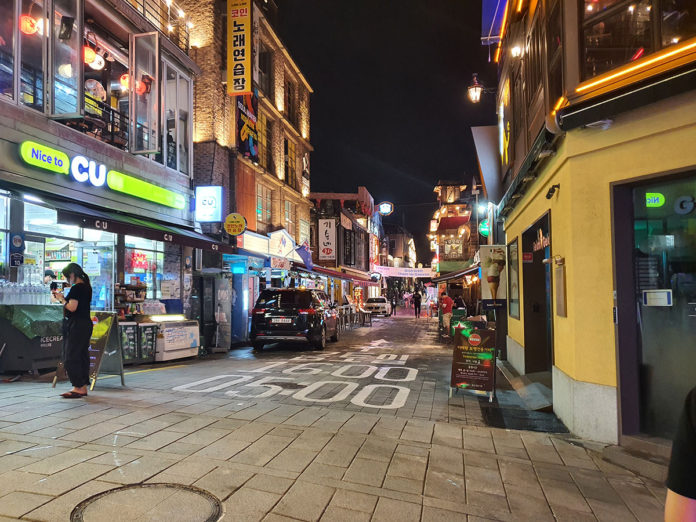This is taken from “Riding the Third Wave,” which looks at adoptees currently living in Korea and the effect of Korea’s social distancing level 2.5 on their professional and social lives.
On a global scale, the novel coronavirus (COVID-19) pandemic has changed the world in unprecedented ways that have affected our daily lives. With present technologies, we can know the number of people infected or deaths in almost any country. Numerous data about this information are massively covered by the media daily all over the world. This is the preliminary phase of much deeper social, economic, and health issues triggered by the ripples of the ‘pandemic’ and how deeply it affected our lives.
In less than a year, since the virus peaked in March 2020, I became one of the millions of ‘victims’ who lost their job. Back in mid-March 2020, I was living happily in Thailand for the past 10 years (from 2010 to 2020) while being close to my son, Zen (8 years old), who lives in Koh Samui. This all changed very quickly. As soon as Thailand started to impose very restrictive ’emergency decrees’, with several months of complete lockdowns and curfews, thousands after thousands started losing their jobs as the most affected was the Travel and Tourism sector.
After becoming jobless and using up all our savings for four months, it was time to find alternatives for our family’s survival.
At the end of July 2020, I decided to come back to Korea and seek alternative ways to work as it seemed that South Korea had managed to contain the pandemic effectively. There were almost no or few drastic lockdowns, restrictions, or curfews. Businesses were running effectively with the “new normal” regulations. Infection and death cases were (and still are) very low compared to other countries.
Being a Korean adoptee with an F-4 visa, which gives overseas Koreans almost the same rights as a Korean citizen, I decided to relocate to Seoul until the pandemic would eventually subdue or vaccines would be widely available.
As my main activity involved lots of traveling to deliver time-critical parcels, sometimes medical supplies or even COVID-19 tests, I was deeply affected by the mandatory home-quarantine of 14 days each time I flew back to Korea after delivering urgent commercial or medical goods, mostly to the USA and Mexico. The first quarantine back in August was pure hell! Being orphaned twice, once when I was abandoned in Busan at around 2 years old, and the second time when my adoptive Belgian-French mother died with my stepfather in a car accident back in 1998, it felt like I was literally in jail. The studio room that I had rented on Airbnb barely had enough space for a bed, a small bathroom, and a small terrace with the boiler and A/C system. I was confined between 4 walls for 2 weeks. I did not have my own place back then, and it took me 2 months to find a proper apartment in Seoul to rent.
Day and night started to turn upside down, I had numerous suicidal thoughts and felt very lonely. I could not even call my parents since they had passed away, and my adoptive father renounced my adopted sister and me several years ago. After 30, in the prime of adulthood, I could finally admit that my adoptive family story was tragic. Of course, I am still very grateful to have been adopted to Belgium and grew up in a relatively healthy and happy family.
It takes lots of courage and a positive mindset to overcome each time you are locked in quarantine at home. It tends to push you into becoming solitary and lonely. Maybe we have a lesson to learn on being independent and how to survive “hiding in a cave.”
After leaving my last quarantine without a job, I decided to follow my passion to cook delicious homemade cuisine under the name Mama Seoul, making take-out and delivery meals and changing up the menu to introduce Seoulites to new cuisine.
I have to thank G.O.A.’L. for providing support to adoptees living in Korea and their “emergency living kit” was a nice touch to cheer us up during these difficult times.
I am sure there are many adoptees who have returned to live in Korea; my story is only one voice amongst many others.
Stay strong and be positive! We adoptees are resilient since we have had to overcome many challenges in our childhood, especially to find our own identity in a foreign environment.












